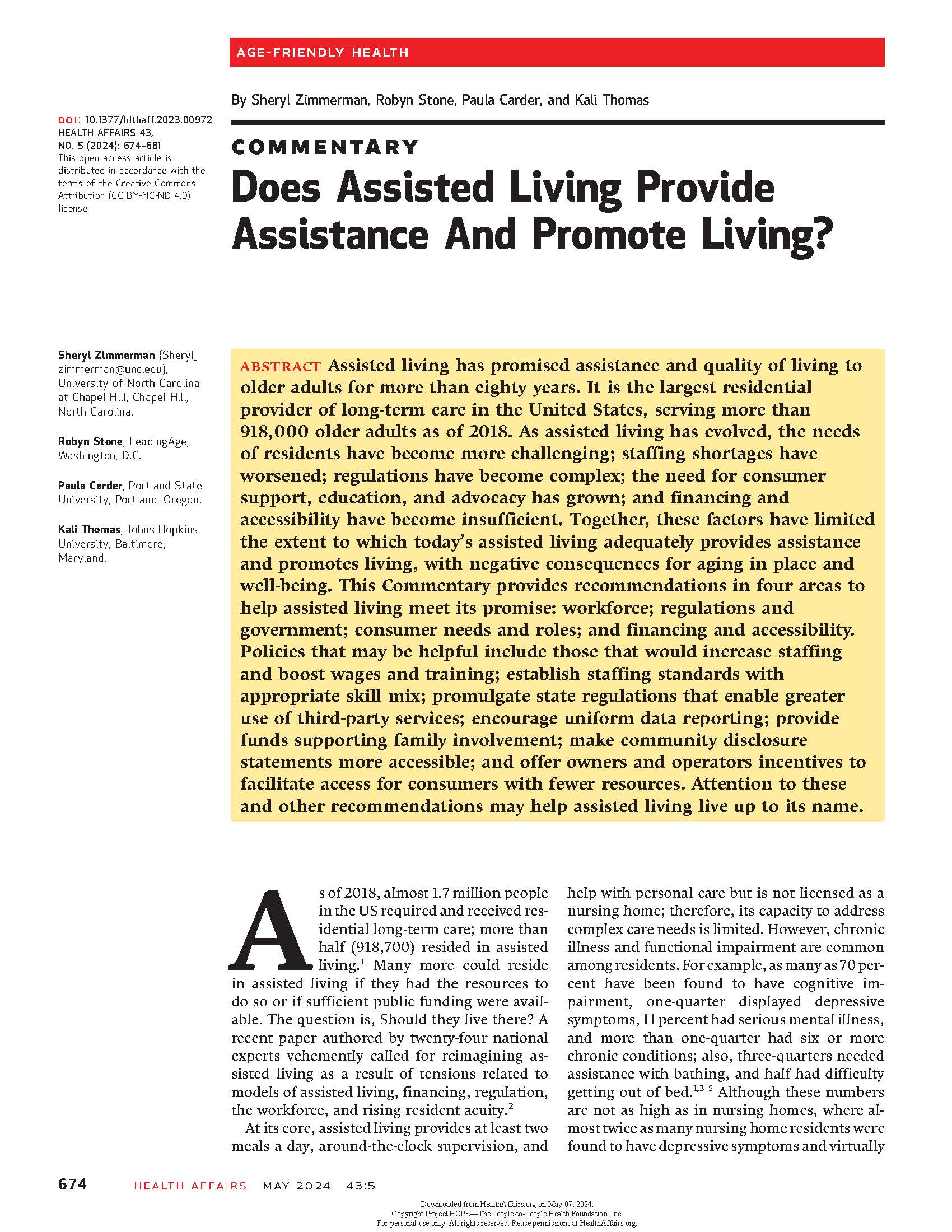Background and Objectives: When older adults face increasing care needs or limited support, remaining safely and comfortably at home becomes challenging. Extant research has primarily concentrated on characteristics of the older adult or their primary caregiver on nursing home admission. This study examines the risk of older adults transitioning to residential care (e.g., assisted living, nursing home), focusing on the influence of their care network or involvement of multiple helpers.
Research Design and Methods: Using the National Health and Aging Trends Study, we conducted competing risk regression models that account for mortality, following 7,085 initially community-dwelling older adults across Rounds 1–9 (2011–2019). We assessed network composition, size, shared tasks, and the number of in-network specialists or generalists while controlling for individual sociodemographic and health factors.
Results: Individuals with care networks that shared medical tasks had the highest risk of moving to a residential care setting, followed by those sharing household tasks. Conversely, shared mobility or self-care and transportation responsibilities were associated with lower risks. Having more generalists, but not specialists, increased the risk. Larger networks were associated with heightened risk, although having close family members like a spouse was protective.
Discussion and Implications: The findings underscore that care network characteristics are critical to older adults’ ability to age in place. Specifically, older adults with larger networks, lacking a spouse or child, and providing complex care are at greater risk for relocating. Understanding care networks can guide interventions related to care network coordination and resource allocation to help avoid or postpone a residential care move.

Center for Excellence in Assisted Living CEAL@UNC
Advancing the well-being of the people who live and work in assisted living through research, practice, and policy.

